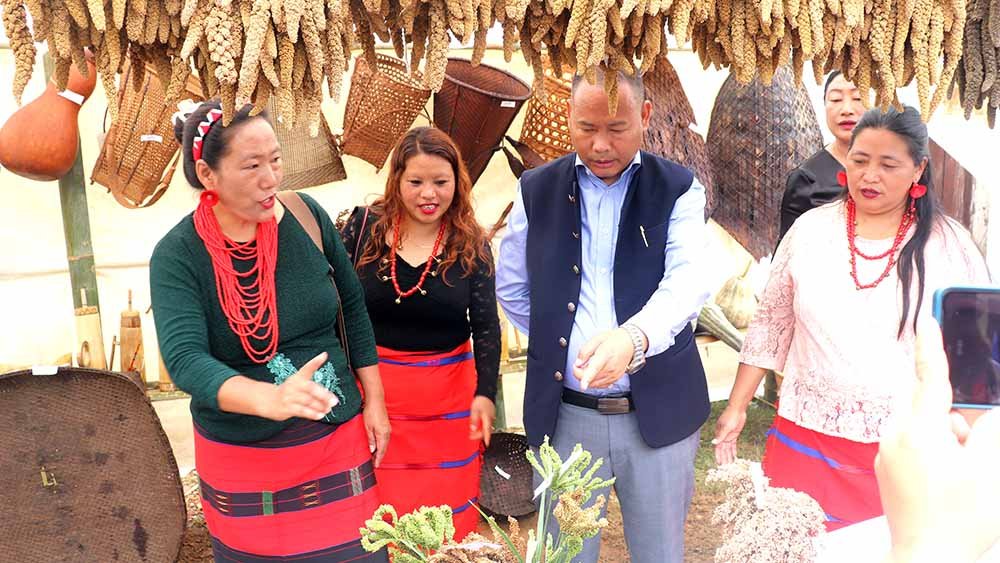The 5th Millet Festival was celebrated in Shamator Town under the theme “Millet: Ancient Grain, Enduring Lives”, reaffirming the community’s commitment to sustainable agriculture and cultural heritage. Organized by the Self Employed Women’s Association (SEWA) Shamator in collaboration with the North East Network (NEN) and the Millet Network of India (MINI), the festival drew over 300 participants from six villages and eleven wards, highlighting the growing interest in reviving climate-resilient crops.
Millet, often referred to as the “grain of the future,” was honoured not only for its nutritional and ecological benefits but also for its deep cultural significance. Agriculture Officer, Department of Agriculture, Risola Jan said that millet is more than just a crop, it is a symbol of survival, resilience and the community’s connection. She emphasized millet’s adaptability to harsh climates, poor soil and minimal water requirements, making it an ideal crop for sustainable farming.
Advisor to the Department of Youth Resources and Sports, Government of Nagaland, Keoshu Yimkhiung, MLA and graced the occasion as the special guest. In his address, he commended SEWA, NEN Nagaland, and the local community for their proactive efforts in restoring millet’s relevance. Reflecting on the two-decade decline in millet cultivation, he shared folk stories that illustrated the crop’s historical importance, once revered as the “mother of all crops” in the Yimkhiung community. He urged the community to take ownership of millet revival and to reclaim sustainable farming traditions, including the cultivation of other endangered crops like indigenous cotton.
Deputy Commissioner of Shamator, Chubatemjen, highlighted the cultural and ecological value of traditional crops. He encouraged the integration of sustainable agricultural practices with cultural heritage to promote intergenerational knowledge transfer.
Esther, representing the Shamator Millet Sisters, shared her experience in identifying and reviving traditional seed varieties. She praised SEWA Shamator and the Millet Sisters for their grassroots efforts, supported by NEN and MINI, and called on government departments, village councils, and farmers to actively support millet revival initiatives. She underscored millet’s role in ensuring food security, particularly during periods of scarcity.
Festival highlights included a farmer’s market, seed and food exhibitions, a millet-eating competition and cultural performances by the Thopün Troupe and Shamator Town Choir. The event served as a vibrant platform for community engagement, knowledge exchange, and celebration of agro-biodiversity.
Since its inception in 2021, the Millet Festival has grown into a grassroots movement advocating for food sovereignty, sustainable agriculture, preservation of indigenous seeds, and community resilience rooted in ancestral wisdom.
Keoshu graces 5th Millet Festival at Shamator town
DIMAPUR

